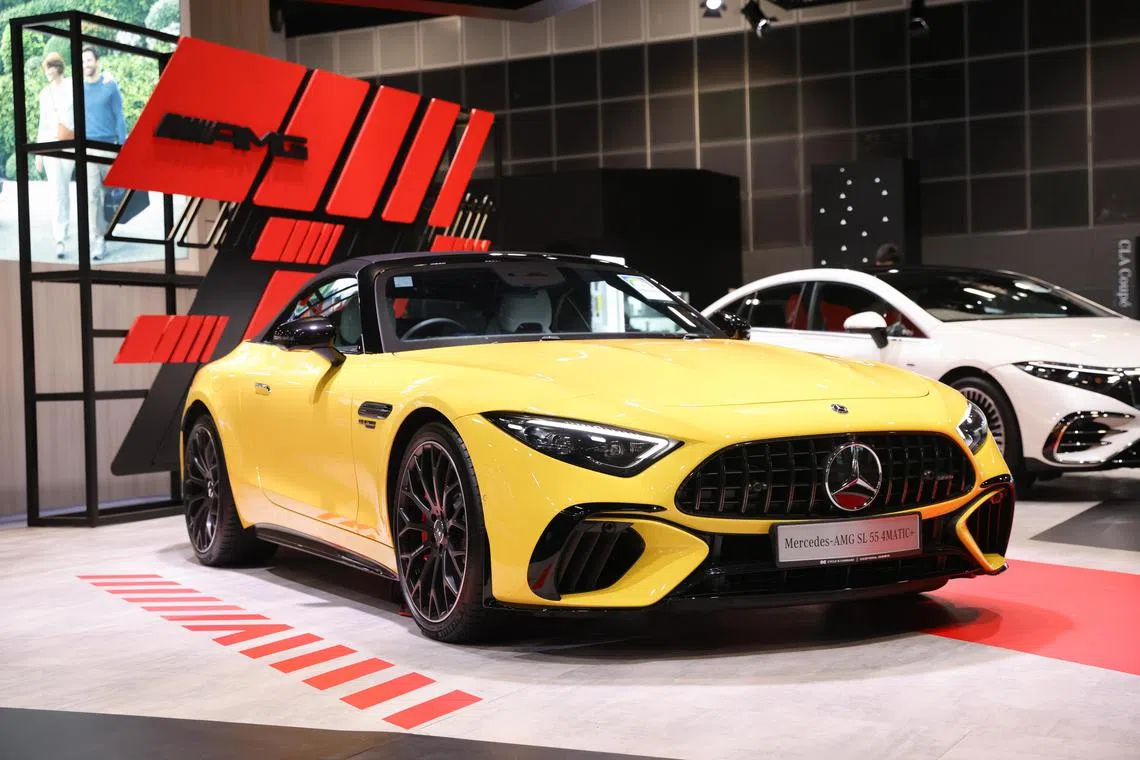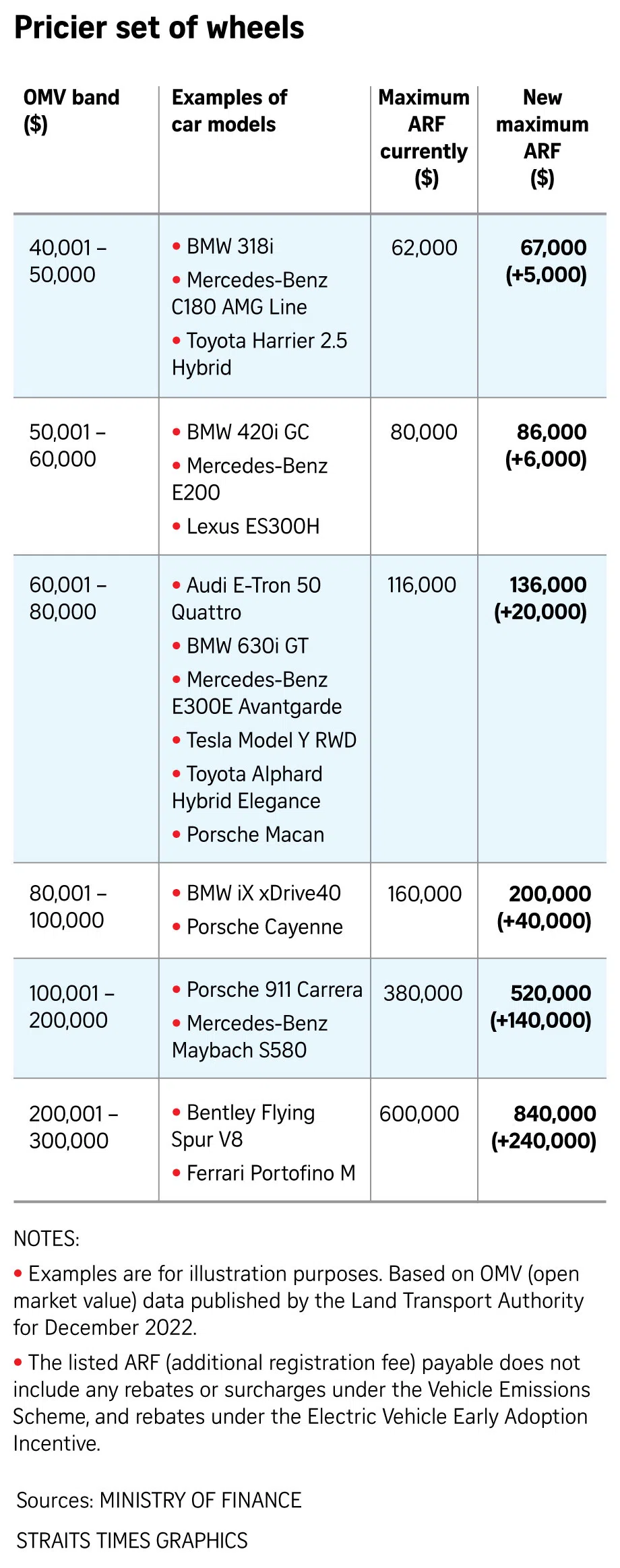Budget 2023: Tax for higher-end cars to rise again; ARF to go up from 220% to 320%
Sign up now: Get ST's newsletters delivered to your inbox

Cars with an OMV higher than $80,000 will incur an additional registration fee of 320 per cent.
ST PHOTO: ONG WEE JIN
SINGAPORE - Buyers of high-end cars will have to stomach another round of tax increase, with the costliest cars attracting a tax of more than three times their open market value (OMV).
Announcing this in his Budget 2023 speech on Tuesday, Deputy Prime Minister and Finance Minister Lawrence Wong said cars with an OMV (the approximate cost of a car before taxes) higher than $80,000 will incur an additional registration fee (ARF, or the main car tax) of 320 per cent.
This is up from 220 per cent, which was announced in a similar tax increase for costlier cars last year. That was preceded by an ARF hike announced in 2013.
Other cars with an OMV in excess of $40,000 will be levied an ARF of 190 per cent for the first $20,000 that exceeds $40,000, and 250 per cent for the next $20,000. Previously, the first $30,000 in OMV over $50,000 attracted 180 per cent of ARF, capped at 220 per cent of OMV above $80,000.
The changes will take effect from the next round of certificate of entitlement (COE) bidding, which closes on Feb 22.
Mr Wong noted that there was room to inject more progressivity into car taxes, to “better differentiate between the higher-end cars” and mass market cars, and also to “tax luxury cars at a higher rate”.
He said these changes are expected to affect the top one-third of cars, and will generate about $200 million in additional revenue a year.
“Buyers of cars with an OMV of $40,000 or less will be unaffected,” he added.
In another move seemingly to cool the overheated premium car market, a $60,000 cap on the preferential additional registration fee (Parf, or the residual value of a car deregistered before its 10th year) will take effect. Again, this will affect only cars with an OMV in excess of $40,000.
For instance, a car with an OMV of $100,000 would have been eligible for a Parf of at least $100,000 when it was deregistered before its 10th year previously. But the owner of the same car will now get only $60,000 back.
This will further raise the annual depreciation cost of cars like Porsches, Ferraris, Bentleys and Rolls-Royces. Several electric cars – which tend to have a higher OMV than conventional models – will also be affected by the double whammy of higher upfront cost and lower residual value.
Like previous car tax adjustments, this one is expected to have an immediate impact on buyers and sellers alike.
For instance, motor traders holding on to the transferable Open category COE – which can be used to register any vehicle type except motorcycles, but ends up almost exclusively for costlier cars – are expected to gain a windfall as buyers rush to buy cars before the tax changes take effect.
Mr Neo Nam Heng, adviser to the Automobile Importer and Exporter Association and chairman of diversified motor group Prime, said: “Those with Open COE in hand will make at least 50 per cent profit each.”
Mr Neo, who said the tax changes are fair, noted that there will be other outcomes. “Unlike the two previous rounds of tax increase, this one will soften COE prices,” he said. “The previous increases were not big enough.”
The veteran motor trader has long maintained that buyers of high-end cars and private-hire operators were largely responsible for “pushing up COE prices”.
Other observers said prices of higher-end used cars are also likely to rise in tandem with the tax increases.
Read next - Budget 2023: What you need to know - from more cash payouts to higher property and car taxes




